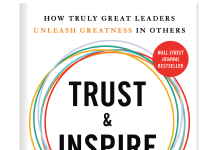“How would you design a health-care system if there was no such thing as doctors? How would you design it if intellectual property were invented differently— not so tied to chemical solutions?” asks this hero.
“The rules of the world in which we live are not written on tablets handed down by God. They are artifacts of our history. Most of them were done for good reasons, but sometimes those reasons have changed. And it’s appropriate to reexamine the rules.”
That’s Jamie Heywood, co-founder and chairman of Patients-LikeMe, which is focused on reinventing health care. His firm enables its members to bypass the usual double-blind, secretive approach to collecting and sharing health information, and opens it up so everyone can learn from everybody else. Members share their own data on their conditions, treatment history, symptoms, functional scores, moods, and more. The result is a detailed longitudinal record that gives patients insights into their diseases that they could not obtain otherwise.
Heywood’s quest began when his brother, Stephen, was diagnosed with ALS (Lou Gehrig’s disease). The family searched the world for ideas that would help Stephen live a longer and better life and was not satisfied with what they found. Stephen died in 2006, but the family kept searching for better ways to fully understand one’s own health.
Heywood typifies the first successful habit in a disruptive world—question everything.
“When I was doing discovery and clinical research with Stephen,” he shares, “I thought of it this way: I don’t work for the FDA, and I don’t really care what they think of what we’re doing. Obviously, we’re not going to break any laws. And the concerns they have are real issues that we want to address. But we’ll address them with our own priorities and our own approach.
“I believe humanity is at a crossroads. We think we live in a free society because we’re free to choose what computer we buy or where we live. But when you think about it, 17 percent of our GDP is in health care. What we need to talk about is the democratization of a system that completely fails from every transparency standpoint and from every cost standpoint. I want to invest in my parents being here for a long health span, but I have no way of making that investment because we have no holistic measures of health.”
Heywood concludes, “One of my favorite personal values is ‘challenge and respect.’ You really need to respect what people believe and why they operate the way they do. But you have the right to challenge those assumptions.”
Within Heywood’s approach are two core ideas to remember for a disruptive world:
- Respect the people
- Question everything else
Many of our systems, structures, rules, and approaches are holdovers from the Industrial Age and need to be completely rethought.
Everything Is Up For Grabs
We are in the midst of a massively disruptive era, where most every system or rule for how we do things has been, and will continue to be, up for grabs. From how governments deal with disasters to how businesses deliver value to how you care for own health, and much more—it’s all being rethought and reinvented.
Whether you like that or not doesn’t matter. It just is.
Your parents’ decision to have sex when they did puts you smack dab in the middle of the era of personal disruption.
The choice before you is simple. How do you want to face life? Reactively or proactively?
Extremely Proactive: The people who ask questions that no one else is asking are the inventors and entrepreneurs and leaders who will create the next wave of innovative disruptions.
Mainstream Proactive: The people who actively question most every system, structure, and rule placed before them and then pick and chose which ones to ignore, work around, or change are the people who are taking charge of their lives.
Reactive: The people who accept most everything as it’s handed to them will forever be holding on for dear life, waiting for the constant personal disruptions to subside.
Again: How do you want to face life?
Nothing Is Immune to Disruption
“No one is immune. Everyone is being touched,” says this hero.
“The instinct is to feel that you are immune to these forces. But anything is now possible.
One thing we all need to ask is, ‘What is currently analog that could be smarter, faster, stronger with data running through it, with a digital approach?’ Leave the analog where it matters—where people need to connect with other people face-to-face—but pull it out where it doesn’t.”
That’s Aaron Dignan, founding partner and CEO of Undercurrent, a digital strategy firm that helps clients such as GE, PepsiCo, and Ford stay ahead of their competition.
He continues, “Objects and information are starting to co-mingle in a very interesting way. Think about smarter everything. Think about: What is the information layer that’s hiding within everything and how do we use that?
Think about how little feedback we get every day from our bosses, our family, our friends, from our stuff. Did I do a good job today on my e-mail inbox? I have no idea. And I think that’s a travesty.”
From our cars to our music selections to our training and development, everything now is being disrupted digitally.
Every business is trying to get everything to run smarter, faster, stronger, and cheaper. And the holy grail of the current age of disruption is getting all those digital things to talk to each other so everything you use and interact with is smarter—creating constant feedback loops and even better ways of doing things.
Those are the driving forces within a lot of the personal disruption coming at you every day, and that are causing so much rethinking of everything.
If You Want to Be Proactive, Begin Here…
Rethinking most anything begins with one of the following…
- What if… ?
As in: What if the sun didn’t revolve around the earth? (Galileo)
- Why… ?
As in: Why does it have to be that way?
(Steve Jobs, and most every child on the planet)
- Let’s do it differently…
As in: Let’s ignore how it’s supposed to be.
(Sgt. Pepper’s Lonely Hearts Club Band, Richard Branson)
Excerpt from “Disrupt!: Think Epic. Be Epic.” by Bill Jensen (Net Minds Corporation, 2013). For more information, visit http://www.amazon.com/Disrupt-Think-Epic-Be/dp/0988879522/ref=sr_1_1?s=books&ie=UTF8&qid=1374770704&sr=1-1&keywords=disrupt+bill+jensen
Founder, president, and CEO of change consulting firm The Jensen Group, Bill Jensen’s mission is to make it easier for people to get stuff done. In 1992, Jensen launched an ongoing study, The Search for a Simpler Way, and has interviewed and surveyed more than 500,000 people around the world about what really matters and how they get everything done. That research has supported all of his previous books including, “Hacking Work,” “What’s Your Life’s Work?” and “Simplicity.” His latest book is “Disrupt!: Think Epic. Be Epic.”




